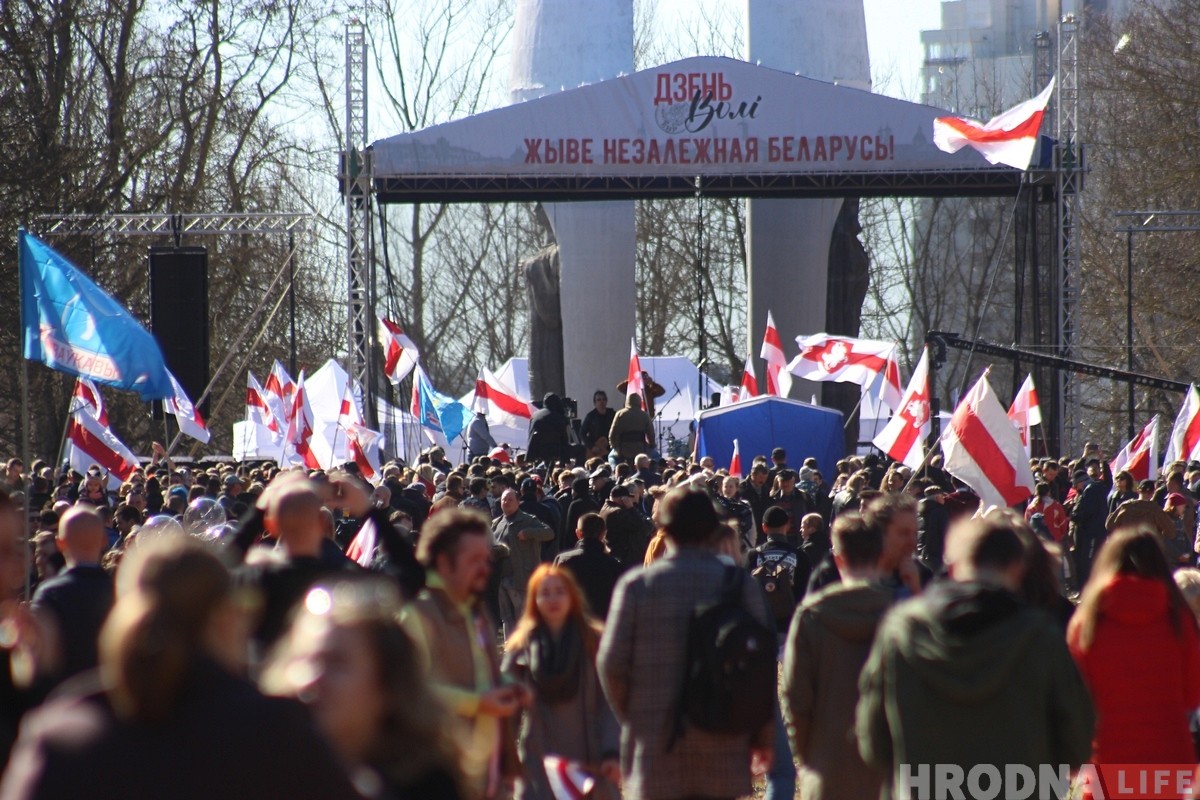2019 Review: political parties and civil society somewhat succeeded in promoting their initiatives, including during the parliamentary elections
 The situation has gotten better
The situation has gotten better

It is not that civil society and political parties significantly strengthened their positions in 2019, however, their influence enhanced. Political parties and civic initiatives further pursued their strategies aimed at mobilizing activists and promoting changes through a dialogue (Tell The Truth, the Belarusian Popular Front, Fair World), or an ultimatum (the Belarusian National Committee) or a combination of both (centre-rightists and social democrats). Using a variety of mechanisms to put pressure on the authorities, civil society and political organizations somewhat succeeded in promoting changes in the economy (October Economic Forum (KEF)) and won concessions on high-profile matters (deferrals from the army service, anti-drug legislation), including in the regions (battery factory near Brest and other local initiatives).
The centre-rightists (the United Civic Party, Belarusian Christian Democracy and For Freedom Movement) and social democrats focused on their conventional supporters and attempted to reach out to new protest groups. For instance, Mothers 328, environmental activists from Brest and the Youth Bloc nominated their parliamentary candidates through centre-rightists and social democrats. Political organizations attempted to engage in a dialogue with the authorities to protect the interests of disadvantaged groups and lobby legislative changes through MP Kanapatskaya; Social Democrats represented the interests of the opposition during a public debate concerning a bill amending legislation on political parties. After the parliamentary campaign, Belarusian Christian Democracy co-chair Sevyarynets loomed large as the leader of unauthorized rallies for Belarus’ independence.
Tell The Truth, advocating for a dialogue with the authorities, pursued the peaceful change strategy and operated within the existing legislative framework. Such an approach enabled some success cases in addressing local issues in the regions, enlarged its outreach and helped to recruit new activists. Tell The Truth also held several popular New People Forums, engaging prominent Belarusian and international experts.
The Belarusian Popular Front, other national-cultural initiatives and MP Anisim sought to avoid public confrontation with the authorities. However, unlike in 2019, they managed to hold authorized Freedom Day-101 celebrations only in Hrodna. In Minsk, Freedom Day celebrations organizers from social democrats and centre-rightists put forward political demands.
The take-it-or-leave-it Statkevich-led BNC reanimated the idea of ‘Maidan’ protests, however, temporarily abandoned unauthorized activity and participated in the parliamentary elections. BNC members participated in the elections with two separate agendas: “European Belarus” had a pro-European agenda and advocated against the NPP, and Narodnaya Hramada aimed to mobilize activists for Statkevich’s initiative group in the upcoming presidential campaign. Former political prisoner Statkevich altered his rhetoric regarding Russia and offered guarantees to Lukashenka upon his resignation. Statkevich’s participation in the parliamentary elections allowed him to gather a large initiative group (some 3,000 activists) to participate in the presidential campaign.
Some attempts to engage in a dialogue with the authorities were successful, especially those lobbying for economic reforms (KEF, repeal of the decree on illegal entrepreneurship) and foreign policy improvements (the “Minsk Dialogue”). Due to cooperation between government and KEF experts, a consensus, supported by most of the population, was reached regarding the need for economic reforms. Civil society also effectively advocated for excluding some overly restrictive regulations from the bill amending legislation on political parties and public associations (yet to be submitted to parliament).
The role and influence of bloggers on protest groups’ mobilization increased in 2019. During the parliamentary campaign, bloggers writing about social and political matters (NEXTA, MozgON, Tikhonovsky, etc.) attempted to convert their popularity into offline political action and mobilized subscribers for rallies in Minsk and Homiel.
Forecast for 2020
- The three oppositional political centres expressing the interests of different social groups are likely to nominate their presidential candidates
- The influence of the communication channels alternative to media is likely to increase
- Civil society and the expert community’s influence on the political agenda are likely to remain at the current level, which is rather high for an authoritarian state
Author: Zmicier Kuchlej
Subscribe to our newsletter




Situation in Belarus
Constitutional referendum: main consequences


 Video
Video
How to count the political prisoners: are the new criteria needed?


 Video
Video
Paternalism In Decline, Belarusian Euroscepticism, And The Influence Of Russia


 Video
Video












